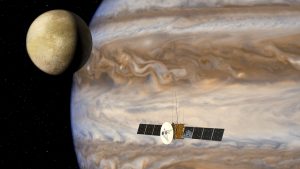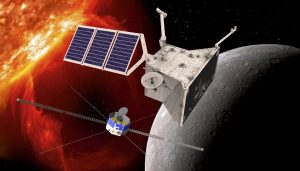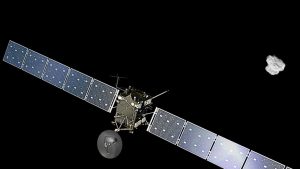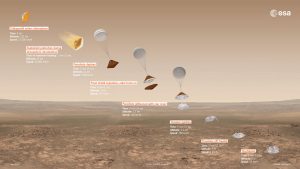Juice Mission
The JUICE (JUpiter ICy moons Explorer) mission is a joint project between the European Space Agency (ESA) and NASA to study the Jovian system, particularly Jupiter’s icy moons Europa, Ganymede, and Callisto. The mission is set to launch in 2023 and will include involvement from the University of Padova in Italy, which designed and provided the high resolution camera cover mechanism. The JUICE mission aims to explore the potential habitability of these icy moons and to provide new insights into the formation and evolution of the solar system. The mission is expected to reach Jupiter in 2029 and will conduct observations for at least three years.
Bepi Colombo Mission
The BepiColombo mission is a joint project between the European Space Agency (ESA) and the Japan Aerospace Exploration Agency (JAXA) to study Mercury, the smallest planet in our solar system. The mission launched in October 2018 and includes involvement from the University of Padova in Italy, which colaborated in design and manufacturing of the simbio-sys instrument to measure the planet’s topography. BepiColombo aims to provide new insights into Mercury’s geology, magnetosphere, and atmosphere, as well as the origins and evolution of our solar system. The mission is expected to reach Mercury in 2025 and will conduct observations for at least one year.
Rosetta Mission
The Rosetta mission was a space exploration project led by the European Space Agency (ESA) to investigate Comet 67P/Churyumov-Gerasimenko, which launched in 2004 and reached the comet in 2014. Along with deploying the lander Philae, the mission also involved the University of Padova in Italy, which provided the OSIRIS WAC camera, an instrument that captured high-resolution images of the comet’s surface. Through this mission, scientists gained new insights into the formation and evolution of comets and the origins of our solar system. The Rosetta mission ended in 2016 with the spacecraft’s controlled landing on the comet’s surface.
Schiaparelli Lander
The Schiaparelli lander was a joint project between the European Space Agency (ESA) and the Russian space agency Roscosmos to land a probe on Mars. The mission launched in March 2016 and included involvement from the University of Padova in Italy, which contributed to the development of the Mars Climate Database used for mission planning. Unfortunately, the lander crashed on the surface of Mars in October 2016, and the mission was deemed a partial success.




